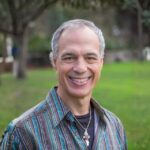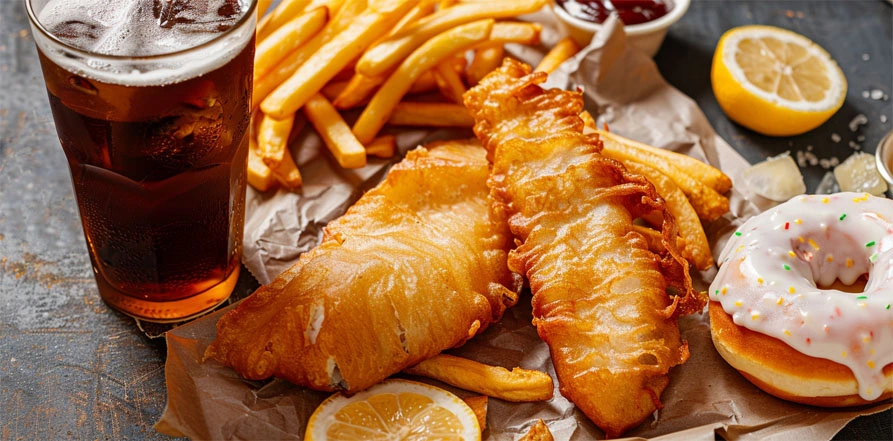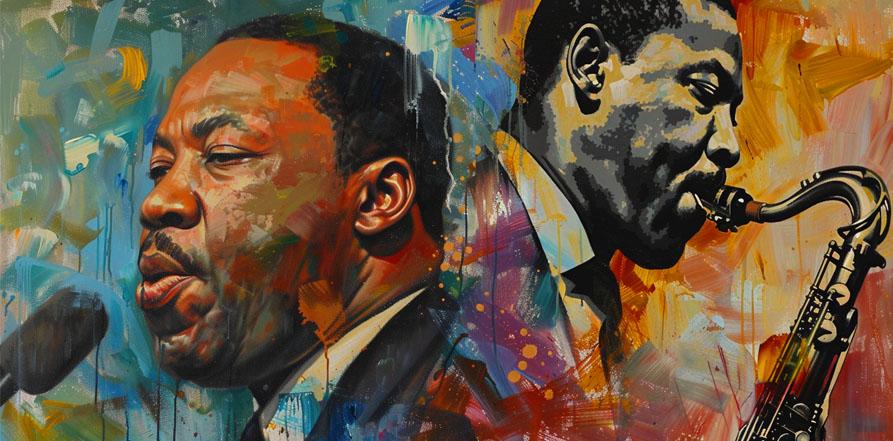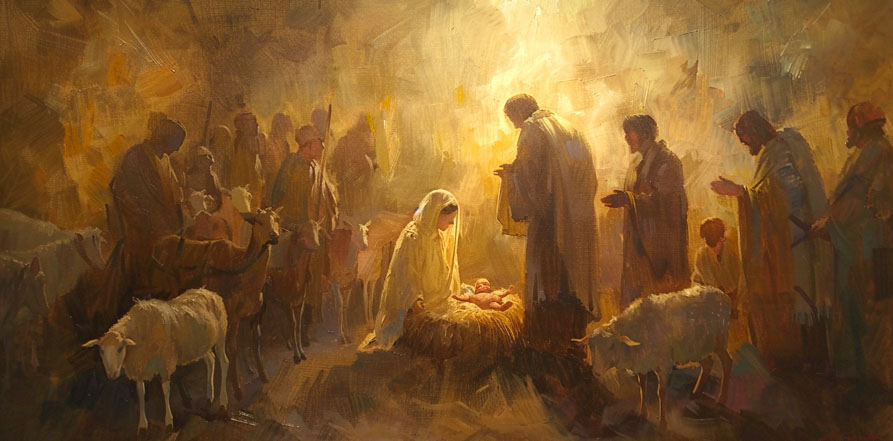“If you don’t have the whole spiritual thing, I don’t think jazz is complete…I don’t think it’s worth producing.” Jimmy Heath
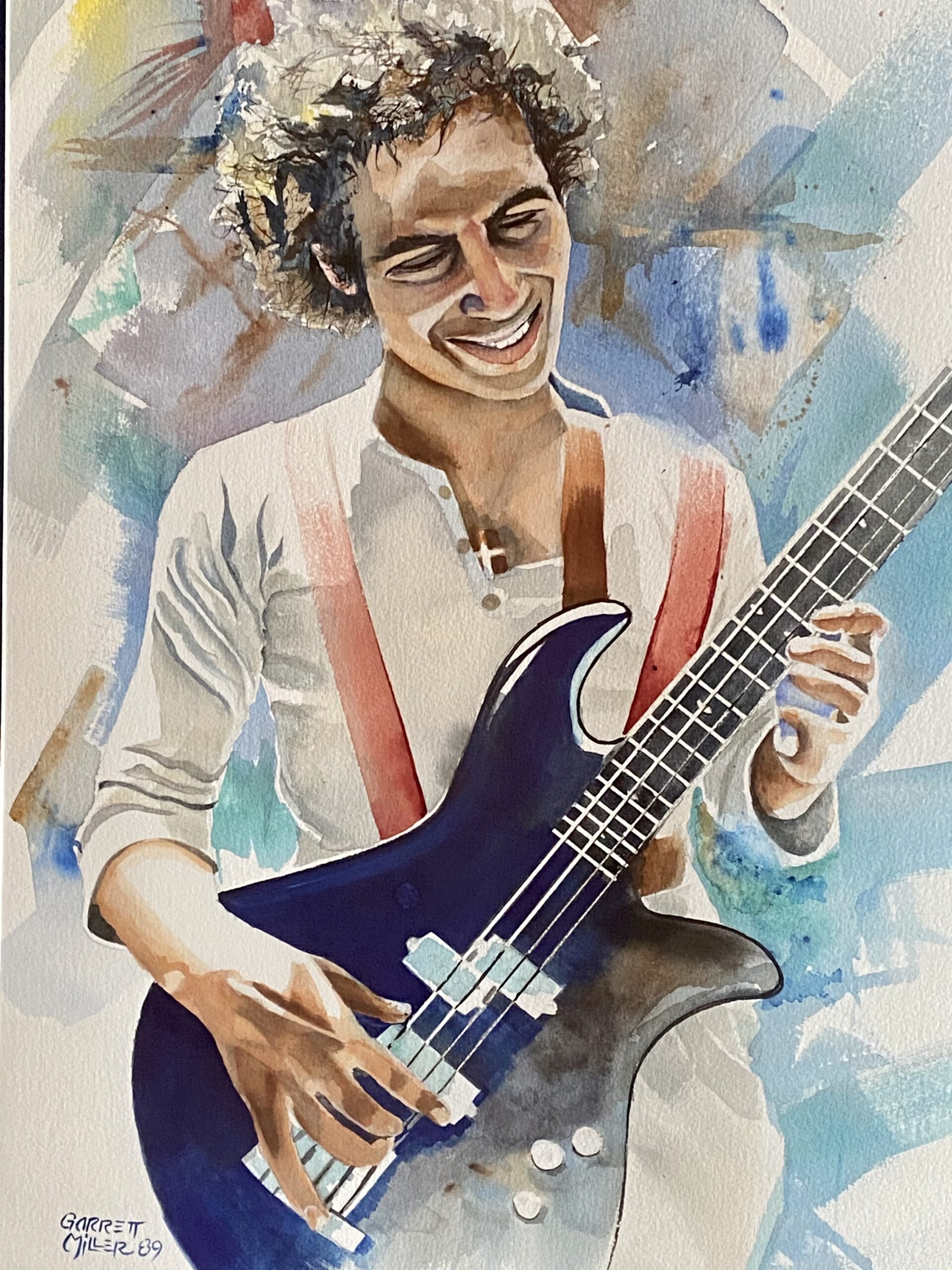
My passion for healing and my passion for jazz music infuse my life’s work, so much so that I cannot imagine one without the other.

Beethoven also said, “Music is a higher revelation than all wisdom and philosophy. Music is the electrical soil in which the human spirit lives, thinks and invents in.” But first, we must learn to listen.
Learning to Truly Listen
Most of us can benefit from learning to listen with full attention. All too often, we’re thinking of what we’re going to say next instead of being present in the moment in a conversation. Learning how to listen to music can help us learn how to really listen to another person. I find this especially helpful in my clinical practice when I’m working with individuals who have complex health challenges. This type of ‘active’ listening requires a union of the heart and mind and the utmost concentration. It also asks you to be in prayer, and to petition your heart for insight and guidance to see the map and the path to healing.
There are two ways to listen to music: passive and active. Passive listening is what people do most of the time. They turn on music while reading, doing homework, driving, working out, dancing, or maybe even writing a blog post. Passive listening takes no effort. Active listening, in contrast, takes intense focus and involvement. It takes much more effort than passive listening, but it is much more rewarding. Of all types of music, jazz requires active listening in order gain enjoyment from it, otherwise it can simply sound like noise.
I find it fascinating that active music listening and performance have been shown to affect human gene expression. In studies, microRNAs have been associated with song-learning, singing, and seasonal plasticity networks in songbirds.[1] Music can also trigger epigenetic alteration in the human body. Research indicates that music performance and music listening affect expression of several genes, many of which are regulated by singing in songbirds. Indeed, songbirds offer important models for studying genomic mechanisms underlying sound perception, vocal communication, and social communication in humans.[2],[3]
Listening to jazz music comes with a multitude of different cognitive benefits that enrich your mind. The back-and-forth playing and the communication of instruments activate areas of the brain correlated with the syntax of language. In addition, listening to jazz can boost creativity. With decreased stress levels and increased patterns of language, the brain is free to use imagination to complete logical thought processing.
Recent Research on Music and Healing
The old adage “Music is medicine” is proving to be true. Obviously a lot of researchers are interested in this topic—a PubMed search for music as medicine offers up 5,166 papers and 134 meta-analyses.
According to one meta-analysis review paper that pooled together twenty-eight trials evaluating the efficacy of multiple interventions, music therapy appeared to be the best treatment for mild cognitive impairment.[4]
A weekly dose of songs and laughs, combined with a daily regimen of jokes and silliness is replacing psychotropic drugs and anti-depressants given to dementia patients at a nursing home in Sydney, Australia. The staff uses humor therapy to reduce aggression and depression in patients with dementia, and consequently have reduced the use of psychotropic drugs, with reported improvements in morale and engagement.[5]
The Similarity Between Jazz Music and Genes
The complex structure of the genome sequence can be compared to a jazz score. A genome is an organism’s complete set of genetic instructions, but although humans are 99.9 percent identical in genetic makeup, there is infinite variation in gene expression.
Like a genome sequence, a jazz music score is open to infinite variations in interpretation. Some musicians play with great fidelity to the original musical text, while others are inspired by the text but branch out into improvisation, sometimes creating music that bears little resemblance to the original score. In every instance, the music that emerges is rooted in the score, but is expressed uniquely by what the musician knows, feels, and wishes to play.
The origin of a particular piece of music may come from a scent that is smelled in infancy or a recent emotional experience, but often the ‘source code’ is unknown. Like people, music grows and evolves with time, and is influenced by the people and places it encounters along the way. Sequences of the human genome have even been used to produce music.[6]

Metaphors on Jazz and Genetics
Jazz musicians practice for thousands of hours honing their craft. When they improvise, they are feeling (from the heart) just as much as they are thinking. The practice of medicine and playing jazz music share much in common in that the mind guides high-level concepts, but the hands are guided by muscle memory and intuition.
Jazz soloing starts with knowledge-based techniques from a prescribed harmonic progression in a constrained rhythmic style. Once this is mastered, there is freedom to move in and out of that structure. The more instrumentation behind the soloist, the more the soloist needs to stay close to the harmonic structure; the less formatted chordal instrumentation, the more the soloist can be free from the chordal framework. These systems process an abstract progression (set of chord changes) before generating a solo, and usually take the intermediate step of building a sequence of scales from which melodic material will be drawn. This activity mirrors what most “trained” improvisers do when they prepare a tune for improvisation.[7]
The soloist often has the melody of the song to play off as well. Some soloists improvise off of the melody, while others improvise from the chordal progression. The most skillful soloists combine both approaches, and the most creative of all go beyond thinking or structure. They stretch their imagination, integrating their sound and techniques and creating music from the depth of their being. This is the ultimate in jazz interpretation. My favorite jazz musician, John Coltrane, played jazz in this way. I think as he played he left this dimension momentarily, gaining a glimpse of heaven, and sharing his experience through his music.
Musical training and performance require precise integration of multisensory and motor centers of the human brain and can be regarded as an epigenetic modifier of brain functions.[8] Playing jazz music engages most parts of the brain, while simultaneously processing different types of information (via visual, audio, and motor cortices) and concurrently making connections and sequences. These areas of the brain strengthen with practice, which strengthens the associated functions of each lobe.
Jazz musicians, because of their ability to improvise, have higher levels of executive function (the cognitive skills you use to control and coordinate your other cognitive abilities and behaviors). Since creating jazz music involves the crafting and understanding of different messages and emotional content, musicians have strengthened abilities to plan, strategize, and pay attention to many details all at the same time.[9]
A unique aspect of improvised music is group interaction. As with listening to individual soloists, the understanding and recognition of how members of a group relate and react to one another grows along with their experience. For example, the soloist plays a phrase and then leaves a couple bars of rest. This could be an opportunity for the piano player to play a phrase in response to what the soloist just played. The more comfortable a group is playing together, the more they will understand each other’s preferences. That’s why groups that have been playing together for a long time are in sync with one another. Improvisation is musical conversation. For most people, conversations are usually more fluid with people you know well than with strangers.[10]
The Term “Eclectic” and How it Applies to Jazz and Mederi Medicine
Eclectic medicine is the skillful weaving together of whatever treatments prove to be useful. In Mederi Medicine, although botanical preparations are the backbone of our approach, we believe it is essential to keep an open mind and to study and use all types of medicine. Jazz music is similar, in that all types of music—including classical, gospel, funk, rock, and ethnic music—are interwoven into the sound, feel, and structure of a piece.
Both Mederi Care and jazz music share in common the openness to new ideas (sounds), and the desire to continually work on learning, developing and improving. Knowledge, understanding, and inspiration appear in many ways.
All of the elements of how the heart and brain work and relate to others that go into both listening to and playing jazz music translate beautifully to practicing medicine. I recommend that all of us in medicine and the healing arts spend more time actively listening to great jazz and classical music. Try listening to the same piece of music 3 or 4 times in a row. This is something I often do when I get a new CD. Sometimes the first time I listen to it, I don’t like it, but by the 3rd time, I love it.
I approach Mederi Medicine in the same way. I believe it is essential to read all types of medical texts, from traditional herbal medicine including American Eclectic Medicine and Physio-medicine texts; Traditional Chinese Medicine; Ayruvedic medicine; modern texts, such as Michael Moore and Rudolf Fritz Weiss; and folk herbal books like Maria Treben, Alfred Vogel and Jethro Kloss. Then you need to study nutritional medicine, dietary medicine, and modern allopathic medicine, and understand how to use all of these medicines in a unified way that will best serve the patient. In jazz it is similar, in that you need to study the approach of many musicians and many types of music, and then figure out how to cross-pollinate all of this into your own unique voice/sound.
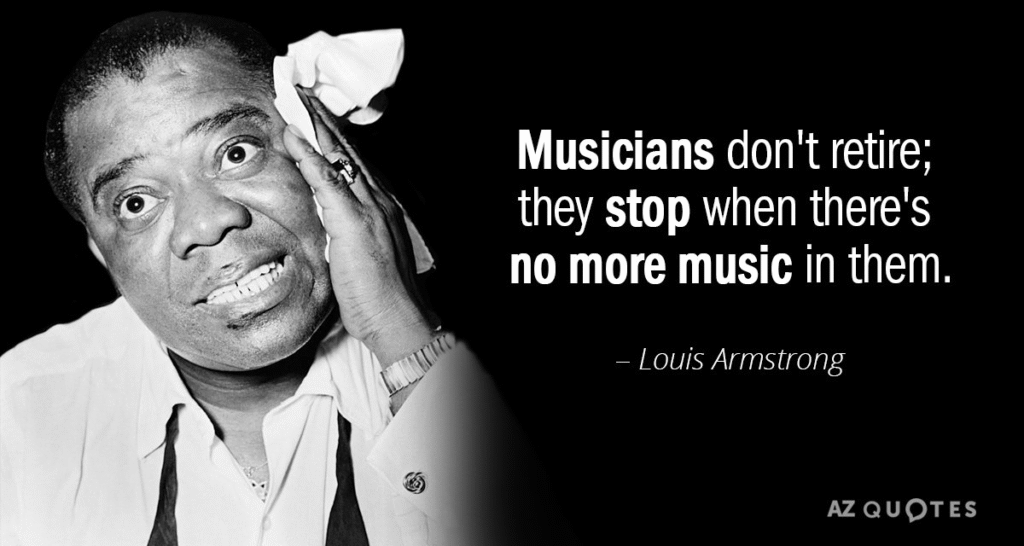
On a Personal Note
As has happened with many musicians, since March and COVID-19 related restrictions on gatherings and events, I have been playing far less than normal. I’ve used this pause to channel my passion for jazz into writing and recording a CD of my original music. I’m grateful to have some of the best musicians I know playing on the CD, and I’m thankful to be able to include the song “Hope Alley” that my friend and well-known musician Gino Vannelli wrote as a gift for me.
These songs are prayers of faith, hope, and love. They are inspired by my faith, and although not at all typical for spiritual music in that they have more jazz elements, they are deeply spiritual.
The CD is named “Heaven Awaits” after the title track and is available through my non-profit foundation, the Mederi Center. All of the proceeds generated go towards supporting the healing work that we do. This seems fitting, in that I see everything in life through the lens of a musician and therefore the Mederi-Care approach is one centered in musical concepts and analogies.
I believe everything we are and do matters, and I believe we are to do our best to bring as much love and goodness to the world as we can. This will in turn unite us all as ONE. “On earth as it is in heaven.”
Blessings,
Donnie
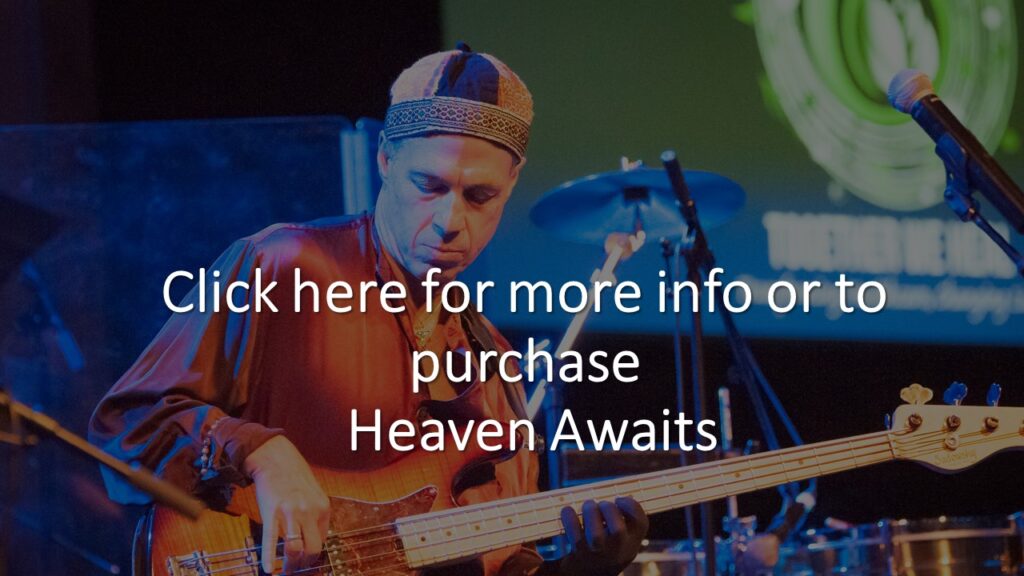
[1] Nair PS, Raijas P, Ahvenainen M, Philips AK, Ukkola-Vuoti L, Järvelä I. Music-listening regulates human microRNA expression. Epigenetics. 2020 Sep 6:1-13. doi: 10.1080/15592294.2020.1809853. Epub ahead of print. PMID: 32867562.
[2] Kanduri C, Kuusi T, Ahvenainen M, Philips AK, Lähdesmäki H, Järvelä I. The effect of music performance on the transcriptome of professional musicians. Sci Rep. 2015 Mar 25; 5():9506.
[3] Whitney O, Pfenning AR, Howard JT, Blatti CA, Liu F, Ward JM, Wang R, Audet JN, Kellis M, Mukherjee S, Sinha S, Hartemink AJ, West AE, Jarvis ED, Core and region-enriched networks of behaviorally regulated genes and the singing genome. Science. 2014 Dec 12; 346(6215):1256780.
[4] Lai X, Wen H, Li Y, Lu L, Tang C. The Comparative Efficacy of Multiple Interventions for Mild Cognitive Impairment in Alzheimer’s Disease: A Bayesian Network Meta-Analysis. Front Aging Neurosci. 2020;12:121. Published 2020 Jun 5. doi:10.3389/fnagi.2020.00121
[5] Power, Julie, Laughter and music better than drugs for dementia patients, 8/3/2013, https://www.smh.com.au/healthcare/laughter-and-music-better-than-drugs-for-dementia-patients-20130802-2r4w9.html, retrieved 9/4/2020
[6] Porta, Miquel, The genome sequence is a jazz score, International Journal of Epidemiology 2003;32:29–31, DOI: 10.1093/ije/dyg015
[7] Haerle, 1989] Dan Haerle. The Jazz Sound. Hal Leonard, Milwaukee, WI, 1989.
[8] Nair PS, Kuusi T, Ahvenainen M, Philips AK, Järvelä I. Music-performance regulates microRNAs in professional musicians. PeerJ. 2019 Mar 29;7:e6660. doi: 10.7717/peerj.6660. PMID: 30956902; PMCID: PMC6442922.
[9] Deflin, Kendall, Science Confirms That People Who Play Music Are Smarter Than Others, December 10th, 2015, https://liveforlivemusic.com/news/science-confirms-that-people-who-play-music-are-smarter-watch/, retrieved 10/08/2020
[10] Listening to Jazz Music, https://www.musikalessons.com/blog/2016/06/listening-to-jazz/, 10/08/2020

